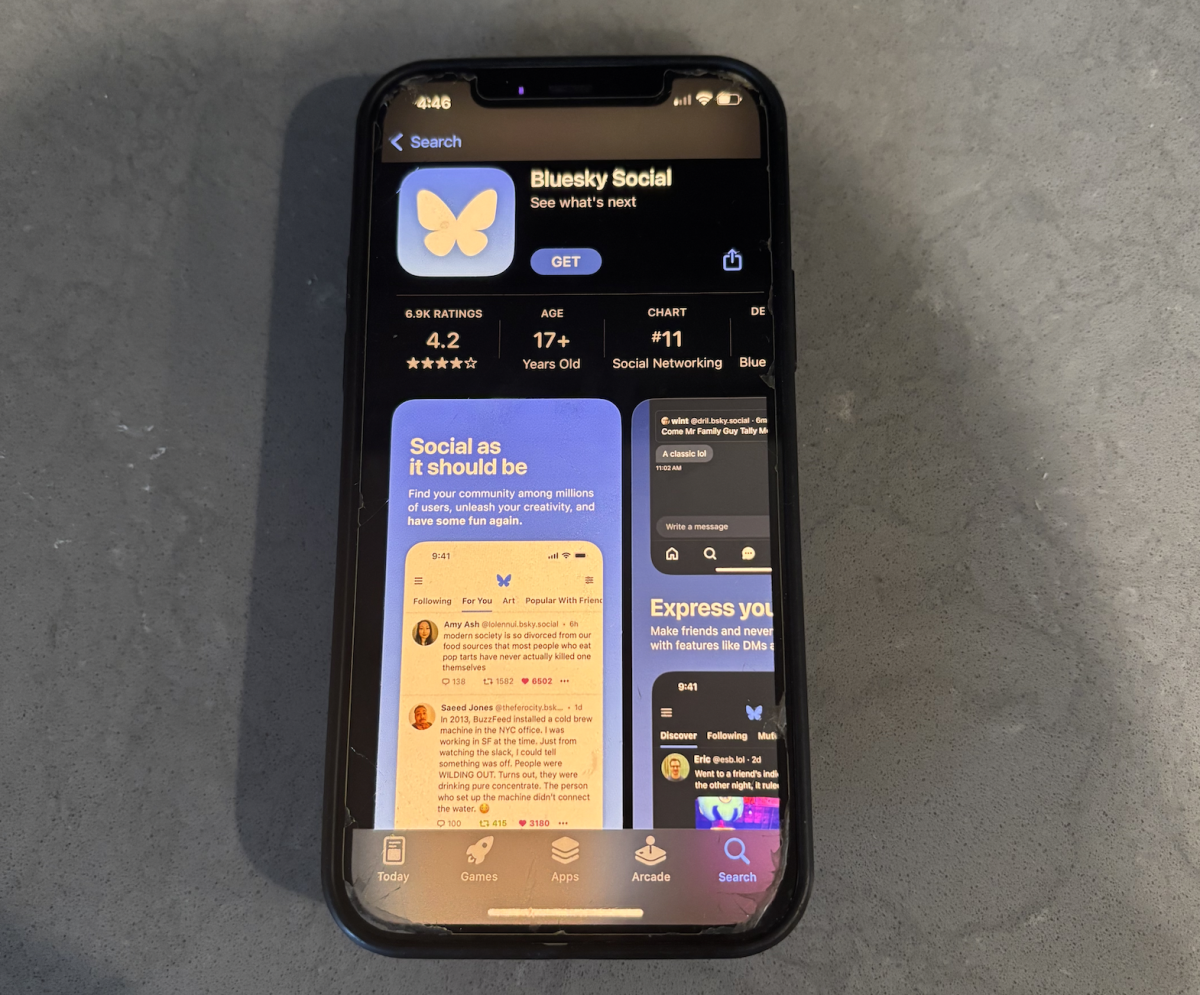Since Tesla CEO Elon Musk acquired X, formerly known as Twitter, in spring 2022, the platform has turned into a right-wing bubble that often supports blatant lies, misinformation and propaganda. The drastic and divisive political shift has caused many public figures to leave the platform altogether, like actress Gabrielle Union, author Stephen King and CNN anchor Don Lemon in search of somewhere new, that embodied Twitter’s previous freedom and potential to spark civil discourse.
Enter Bluesky, a budding Twitter-replacement pioneered by former Twitter chief executive Jack Dorsey in 2019. Bluesky became its own company in 2021 and aims to be a text-based forum that gives creators more choice when curating their experience, while garnering popularity with major celebrities like actress and comedian Quinta Brunson, businessman Mark Cuban and congresswoman Alexandria Ocasio-Cortez. In fact, according to technology columnist Kevin Roose, Bluesky has now acquired more than 20 million users and is currently adding more than one million users per day, as it is ranked highly among Google and Apple’s app stores.
But why the new success? One possible explanation is that during the 2024 election, many X users were sick of the alt-right propaganda, and decided their time spent scrolling through social media’s politics would be better spent elsewhere. Roose said that the experience of being a Bluesky user “is a throwback to a rawer, lower-stakes era of social media, before elections and economies hinged on what happened there.”
Bluesky’s appearance as an innocent fresh start appealed to many who were simply too burned by what Twitter became. What used to be what Roose described as “a global watering hole where celebrities, politicians, journalists, scientists and sports fans all gathered to discuss the news of the day” turned into a chaotic, unregulated forum of political bias and disinformation. Ideally, social media would handle politics with baseline moderation guidelines that still allow for users’ differences of opinion, no matter what corner of the app inhabit.
New York Times internet culture writer Callie Holtermann noted that many of the currently most-followed Bluesky accounts are left-wing, as a result of election disappointment, proving the app still has the potential to become an echo chamber of its own.
However, Bluesky also provides features such as “starter packs,” in which users can curate their feed based on likes, comments, shares and more. The platform’s foundation is the AT Protocol, which is a “decentralized, open-source technology that is designed to let users control how they experience social media. Eventually, that could allow users to pick their own feed-ranking algorithms, choose their own moderation rules or even move their accounts to a different app while preserving their followers and post histories,” making their social media experience more uniquely tailored to their interests.
Bluesky differentiates itself from other forms of social media in that it tries to prevent users from an information overload. The fact that it allows for users to curate their social media feeds creates additional mindfulness in their experience. In fact, Roose claimed “the app resembles a stripped-down version of Twitter,” since it is a simpler form of text-based social media.
If needed, users can even use the nuclear block feature to suspend any interaction with accounts that they feel are violating Bluesky’s community guidelines. While initially off to a slow start, Bluesky is trying to improve users’ experiences by allowing for boundaries to be set — something that many social media platforms seem to be outwardly against in order to promote engagement.
Bluesky is by no means the old Twitter users continue to miss. However, it provides a new dawn for the fast-paced content overload that is modern social media by refraining from constant bursts of short-form videos or overwhelming photo galleries. By returning back to its basics, Bluesky forecasts clear skies ahead for the American public’s online presence.
















